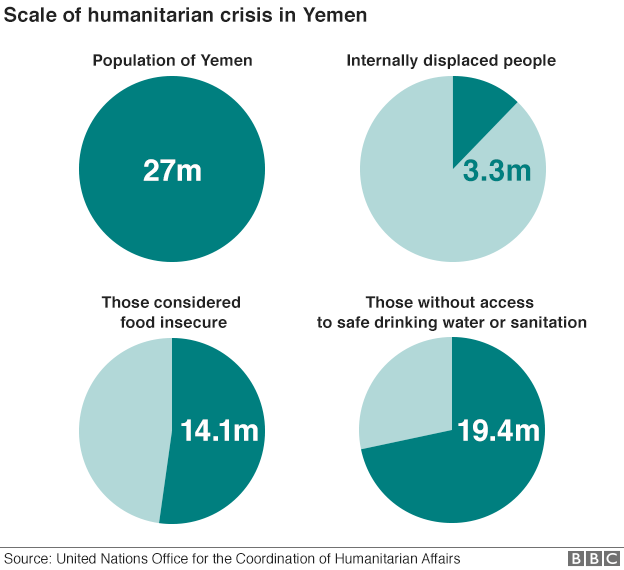
STAND’s Weekly News Briefs are compiled weekly by members of the STAND Education Task Force.
This week’s update focuses on violence against the Rohingya by the Burmese military; an appeal by the UN for more funding to assist with the humanitarian crisis in Yemen where Yemenis are not only facing violence, but also starvation and lack of medical care; and attempts at Syria peace talks planned for this week in Geneva.
Southeast Asia
Burma
UN officials have reported on Burma’s persistent ethnic cleansing targeting the Rohingya population and forcing their mass evacuation from the country. While the government still denies any abuse, the BBC released a video documenting victim accounts of the violence. Victims reported that the military has burned their houses and mosques and brutally murdered their family members. The UN and other human rights investigators are calling on the Myanmar government to end these mass atrocities.
At the beginning of the month, a Malaysian ship docked in Yangon, Burma to deliver food, clothing, and medicine to the persecuted Rohingya was met by Buddhist monks and protesters as well as health workers and activists. Malaysian aid workers reportedly trusted that the Myanmar government would hand over the 2,300 tons of food, clothing and medicine to Rakhine state where around 1 million Rohingya reside. Razali Ramli, who helped organize the shipment, stated, “We have to respect Myanmar’s sovereignty.” He felt that they handed over the supplies “in good faith.”
Middle East and North Africa
Yemen
The humanitarian situation in Yemen remains precarious, raging on without a clear end in sight. Humanitarian organizations and the international community remain concerned about the development of a crisis that touches the lives of millions of Yemenis due to the lack of access to medical facilities, medical care and supplies, food, and other basic necessities. There is severe need throughout the country, but particularly for those in hard-to-reach areas. In response, the UN has appealed for over two billion dollars in funding for 2017.
Despite slow advances, President Hadi’s forces retook the south-west port city of Mokha at the end of last month, which was seized by the Houthis in December 2014. Dozens of families fled the clashes and bombardment in Mokha. Violence has also hit the Saudi border, and the Saudi-led coalition lost seven Saudi soldiers on February 14 in clashes with the Houthi rebels. This incident highlights the continued influence of foreign parties in the conflict.
The violence continues to rage without signs of abating, as countless efforts at peace talks have been exhausted without a long-term deal. However, the dynamics of the conflict have great potential to change as developments in the Middle East as well as changes in foreign policy for nations involved in the conflict begin to have an impact on the war.
Syria
The Geneva Talks scheduled for February 23 are anticipated to assist a collaborative dialogue between President Assad’s government representatives, various opposition figures, and rebels fighting within the Syrian borders.
The UN envoy to Syria, Staffan De Mistura, says negotiating a political transition for the war-torn country will be the sole item on the agenda for upcoming talks between the government and opposition in Geneva. U.S. News comments that De Mistura said the agenda is “fixed in UN Security Council Resolution 2254, which mandates a new form of governance for Syria, a new constitution, and new elections.”
The attendees were slated to arrive in Geneva on February 20. According to information reported by Rudaw, Bashar Jafar and a Kurdish member of the Syrian parliament will head the Syrian government’s delegation. Furthermore, Rudaw says that “the Syrian opposition will send 21 delegates to be headed by Nasr al-Hariri,” and that Fouad Aliko, a member of the Kurdish National Council (KNC, ENKS) will head the Kurdish representation within the opposition groups.” However, some rebel leaders refuse any negotiation talks until the current government reinforces the current ceasefire and addresses humanitarian concerns.
This will be the first time since the suspension of the April 2016 talks that the Syrian regime and opposition delegations have returned to Geneva.
–
Emily Lyford is STAND’s Southeast Asia Coordinator, focusing mainly on Burma. She is a freshman at the University of New Hampshire where she majors in Neuroscience and Behavior.
Ana Delgado is STAND’s Middle East and North Africa Coordinator, focusing mainly on Syria. She is a junior at University of North Carolina at Chapel Hill, majoring in Political Science and Peace, War, and Defense.
Jason Qu is STAND’s Emerging Conflicts Coordinator, focusing today on Yemen. He is a Senior at Bronx High School of Science.

